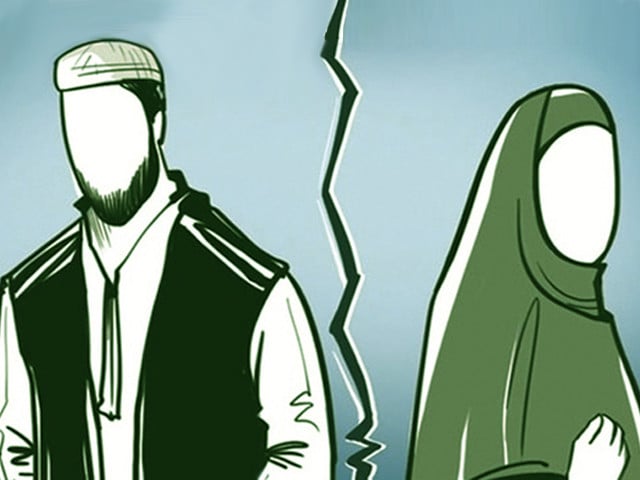
The evolution of divorce proceedings: Recognising mental cruelty
The evolution of divorce proceedings, particularly the concept of Khula in Pakistan, has undergone a profound transformation in recent years. Once deemed a taboo subject, pursuing Khula is traditionally viewed as a bold and daring move for women. The societal landscape had long painted the act of seeking Khula as a deviation from the norm, challenging the established order and inviting social censure. However, a paradigm shift has been underway, sparked by the unfortunate prevalence of inequality and mistreatment experienced by wives at the hands of their husbands.
This shift has, in turn, instigated a new realisation among women — an awakening to their intrinsic worth and fundamental rights. This newfound understanding has empowered women to take measures aimed at safeguarding not only themselves but also their children from toxic and detrimental relationships. Although the principles of Islam inherently forbid cruelty and espouse gender equality, regrettably, societal norms often deviate from these core teachings. The existence of derogatory terms, such as pair ki jooti (the shoe on my foot, used as a derogatory label for women), stands as a stark contradiction to the principles of equality and respect enshrined within Islamic teachings, a fact that remains both bewildering and disheartening.
From 1947 to 2017, divorce judgments in Pakistan increasingly favoured Khula, especially after 2000. This shift reflects a more liberal interpretation of Khula laws, making it easier for women to seek separation due to irretrievable breakdowns in marriage.
The legal landscape in Pakistan has seen notable milestones in this realm, marked by a landmark judgment from the Supreme Court of Pakistan, notably led by Justice Muhammad Ali Mazhar. The judgment cites Paragraph 281 in "Principles of Muhammadan Law" by DF Mulla, stating that cruelty preventing the wife's return is a valid defence. Also, a husband's failure to meet marriage obligations might deny court assistance. This judgment specifically focused on the legal analysis of mental cruelty and its role in the dissolution of marriage under Muslim Law. The legal analysis unearthed the intricate and complex dynamics of marital discord, centring on the deleterious effects of cruelty in the context of terminating marriages within the framework of Muslim Law in Pakistan.
The judiciary is entrusted with assessing the entire marital dynamic, looking beyond individual stories to understand the overall impact. Despite this, the complexity of such cases highlights the crucial need for careful evidence analysis, especially in grasping how certain behaviours affect mental well-being.
In this case, one party endured distressing ordeals, causing profound mental anguish and making the relationship unsustainable. The Family Court recognised this mental cruelty, granting the marriage dissolution. However, the subsequent alterations by the Appellate Court seemed to overlook the severity of the mental trauma experienced, particularly by the female participant.
The intricate tapestry of legalities intertwined with the ethical bearings embedded in Islamic teachings underscores the grave importance of considering mental cruelty within the realm of marital disputes. In this specific case, more meticulous adherence to the evidence, particularly in understanding the severe mental anguish suffered by the female party, would have been pivotal in ensuring an equitable and judicious verdict.
In conclusion, the changing legal dynamics, particularly in Pakistan, regarding the dissolution of marriages, notably through Khula due to instances of cruelty, represent a pivotal stride toward empowering women. The more adaptable and accommodating interpretation of laws has undeniably facilitated the process for women seeking separation. This shift acknowledges the fundamental significance of mental well-being and the dire need to shield women from unbearable situations within the institution of marriage.
Nevertheless, entrenched societal norms and deep-rooted cultural stigmas continue to pose significant hurdles, challenging the core principles of women's rights and equality. This ongoing struggle underscores the crucial and continual necessity for broader social and cultural reforms to run parallel to the evolving legal landscape. The journey toward gender equality and justice for women must not only be a legal evolution but a societal transformation, fostering an environment where fundamental rights are not just recognised by law but upheld and respected within the fabric of everyday life.
As the legal arena progresses and adapts, the indispensable parallel shift in societal mindsets and norms becomes paramount. Real change will stem from a unified effort, combining legal reforms with cultural shifts, to instil a society where women are not just legally protected but genuinely respected, valued, and accorded equal rights in every facet of life. The ongoing challenge remains in reshaping mindsets, erasing stigmas, and building a more inclusive society that truly embodies the principles of equality and justice. This unified progress will lay the foundation for a future where women's empowerment is not just a legal provision but a societal truth, fostering a landscape where every individual thrives in an environment of respect, fairness, and equality.

COMMENTS
Comments are moderated and generally will be posted if they are on-topic and not abusive.
For more information, please see our Comments FAQ